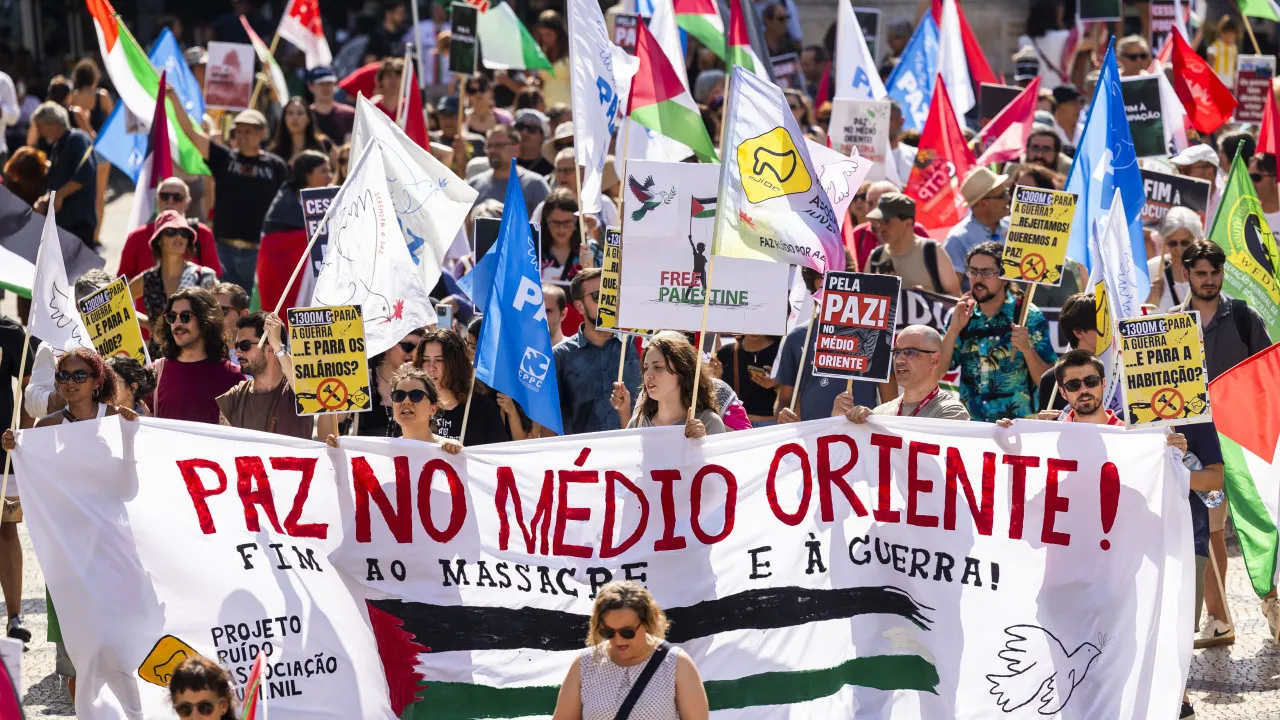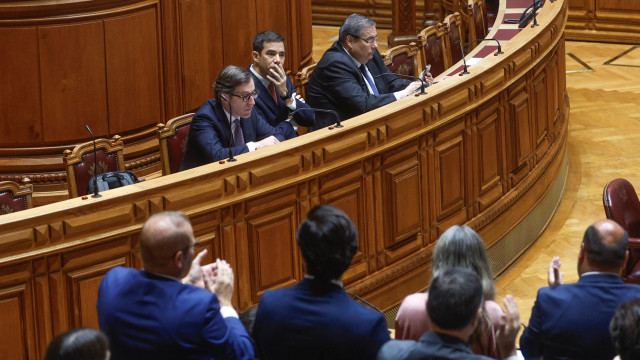
A Dom Quixote is set to release two poetry collections by Nuno Júdice this month: an unpublished work, “Livro de caligrafia,” written between April 1994 and May 1995, and another collection titled “Meditação sobre ruínas,” released under this imprint for the first time.
Also from Dom Quixote, “As cartas do Boom” will be published, a collection of correspondence between Julio Cortázar, Carlos Fuentes, Gabriel García Márquez, and Mario Vargas Llosa. This work offers “unprecedented access to their personal and collective relationships, capturing all their meetings and partings,” providing “a privileged window into Latin American literature and politics, especially during a crucial period of its modern history between 1959 and 1975.”
Furthermore, Dom Quixote will introduce “A trilogia de Paris,” which includes three semi-autobiographical narratives about a woman’s life, marking the Portuguese debut of French journalist, filmmaker, and writer Colombe Schneck.
This triptych — “Dezassete anos,” “Duas burguesinhas,” and “A ternura do Crawl” — delves into themes of sexuality, bodily autonomy, femininity, friendship, and loss.
Casa das Letras is set to publish “Linda menina,” a novel among the six finalists for the Women’s Prize for Fiction, marking the fiction debut of German poet Aria Aber, portraying a young woman’s artistic journey in Berlin, a city inescapable from its history.
One of this month’s major releases from Contraponto is “Se eu quisesse, enlouquecia. Biografia de Herberto Helder,” penned by sociologist João Pedro George. Utilizing Helder’s letters and firsthand accounts from those close to him, the book presents “the human being behind the poet Herberto Helder” for the first time, according to the publisher.
Quetzal’s offerings include a new book by Julian Barnes, “Mudar de ideias,” a collection of five short essays on the theme of changing one’s mind, and the second volume of “Conta-Corrente,” written in diary form by Vergílio Ferreira, covering the period from 1982 to 1985.
Other highlights from Quetzal include “O outro lado dos livros. Memórias de um editor,” by Manuel Alberto Valente, and a new novel by Cape Verdean writer Joaquim Arena, “As mortes do meu pai”.
Bertrand focuses on “O amor não correspondido de Hitler,” by Jean-Noël Orengo, and “Sem tréguas,” by Stephen King, in the fiction category, while Temas e Debates releases “Oceano – O último reduto selvagem,” by David Attenborough.
Chilean writer Isabel Allende presents a new novel, “O meu nome é Emilia del Vale,” published by Porto Editora.
Notable releases from Porto Editora also include a new novel by Valter Hugo Mãe, “educação da tristeza,” and another book by Fredrik Backman, “Os meus amigos.”
Livros do Brasil releases “Qual é o teu tormento,” by American author Sigrid Nunez, and “Quero continuar a viver depois da minha morte,” by German Thomas Sparr.
Alfaguara’s lineup features “Levarei o fogo comigo,” a novel completing a family and social trilogy that also serves as a political and emotional manifesto by writer Leïla Slimani, preceded by “O país dos outros” and “Vejam como dançamos.”
Joël Dicker returns with a new mystery book, “Uma catastrófica visita ao zoo,” under the same imprint.
Cavalo de Ferro plans to release “O marquês de Bolibar,” by Leo Perutz, a modern classic of European literature, and “Gente da Casa,” by Abdulrazak Gurnah, marking the author’s return to publishing after receiving the Nobel Prize in Literature in 2021.
Brazilian writer Jeferson Tenório introduces a new novel, “De onde eles vêm,” to be published by Companhia das Letras, alongside “O vício dos livros II,” by Afonso Cruz.
“Ofendidinhos” by Lucía Lijtmaer, offers an examination of freedom of expression, offense, and protest, critiquing neoconservatism, political correctness, and the true nature of puritanism, published by Objetiva.
Guerra e Paz is set to release “O jogo mais perigoso,” by Richard Connell, considered one of the most popular short stories ever written in English, which won the O. Henry Memorial Award in 1924, and “Verão quente de 1975: Tudo era permitido,” by Pedro Prostes da Fonseca.
Editorial Presença presents “Wellness,” a contemporary novel by Nathan Hill, author of “Nix,” “Uma História africana da África,” by Zeinab Badawi, and “Botchan,” a classic of Japanese literature by Natsumé Sôséki, also known for “Kokoro.”
Noam Chomsky’s “Sobre o Anarquismo” is one of Antígona’s offerings this month, in which the author argues that this political ideology, “often mistaken for social disorder and chaos,” is “synonymous with freedom and constant questioning of power structures, based on collective action.”
Antígona will also publish “A máscara e outros contos” by Stanislaw Lem, a collection of stories written between 1956 and 1993.
An intellectual biography of thinker Hannah Arendt will be released by Edições 70, a work by Thomas Meyer, already sold in 30 countries, titled “Hannah Arendt — A biografia.”
Relógio d’Água’s editorial plan includes another work by Ana Teresa Pereira, “Have Ya Got Any Castles, Baby,” a new book by Italian writer Natália Ginzburg, “Nunca me perguntarás,” and the essay “A Singularidade Está mais Próxima,” by Ray Kurzweil.
In international literature, “O céu de pedra,” the third book in the “Terra Fraturada” series by N.K. Jemisin, will be published, having won the 2018 Hugo and Nebula Awards for Best Novel, following “O portal dos obeliscos” and “Quinta estação.”
Tinta-da-China will launch “Histórias de vida da luta armada,” by Raquel Beleza da Silva, the first major study giving voice to individuals once committed to political transformation through violent means in Portugal.
In the poetry collection, it will release “Vida Efeito-V,” by Brazilian author Carlito Azevedo, and in the essays collection, “Fernando Pessoa no espelho de Celan,” by Claudia J. Fischer.
“Variações do branco,” by Filipe Raposo, is one of the publisher’s focal points, a sound and visual essay presented in a book and CD format by pianist and composer, concluding the “Trilogia das cores.”
“Se não espalmar, fica solto,” an anthology of dispersals that compiles plays, a short story, essays, and a collection of poems by Miguel Castro Caldas, and “Geração de 60,” by Diana Andringa, portraying a generation and its country amidst war, dictatorship, and repression, are other Tinta-da-China publications.
Isadora Neves Marques, a filmmaker, artist, and writer, releases her first Portuguese poetry book “A campa de Marx” through não (edições).




